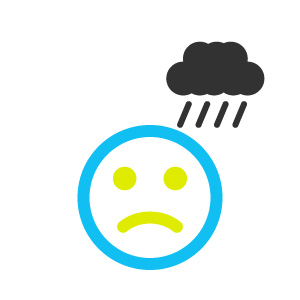
Although getting fired is probably the worst thing that will happen to you in a career sense, getting laid off from a job actually feels worse most of the time. In most instances, you get fired due to poor job performance or bad behavior at work so you have to hold your hand up and take a large portion of the blame.
Being laid off from a job, how to survive?
Being laid off is a completely different story. You have done absolutely nothing wrong and are nothing more than a victim of economics. According to a report in the Trinidad Express from January 2017, approximately 25,000 people had been laid off in Trinidad and Tobago since September 2015. If you’re unlucky enough to be among these redundancies within the last couple of years and are still searching for a job in Trinidad and Tobago, read this guide and get back on your feet.
Take Some Time to Process the News
The best tactic in the immediate aftermath of a redundancy is to take an active break where you can stop thinking about the loss of your job. Avoid making big decisions in the immediate aftermath and don’t charge into the marketplace the day after losing your job. If you look for a new role too quickly, there’s a good chance you’ll choose a bad fit. Also, it is perfectly normal to be angry, upset and rejected so don’t fall into the trap of believing that a ‘grieving’ process of sorts is a sign of weakness.
Avoid Personalizing It
This is perhaps the trickiest thing to master. The suggestion that it wasn’t about you is completely erroneous. Unless the firm has completely shut down, being laid off feels like rejection. In essence, the company is saying: “We made a decision to jettison employees we feel don’t pull their weight and decided you were expendable.”
Your aim is to avoid analyzing the situation to determine what you could have done differently. In reality, there is little you can do. Perhaps your company operates on a ‘last in, first out’ basis so if you’re a relatively new employee, your chances of avoiding the ax are slim to none.
A better way to approach matters is to acknowledge that you (and others) were laid off to satisfy shareholders and trim costs. If anything, it is the company’s decision-makers that are at fault because with good planning and a strong profit, layoffs are unnecessary. Try and stay positive by viewing it as an opportunity to start afresh. In some cases, employees get bogged down in the same job for too long. By getting laid off, they have no choice but to leave autopilot; the decision could be best for you in the long term.
Assess Your Financial Situation
There is nothing like the loss of a steady pay packet to cause panic and fear. Unfortunately, people around the world often struggle to make ends meet in the aftermath of a job loss. In the United States, for example, an estimated 46% of people don’t have $1,000 in their bank accounts. Financial experts state that you should always have 3-6 months worth of expenses to fall back on in case you lose your job.
Carefully analyze your expenditure to determine how long you have to look for a job. If your bank balance makes uncomfortable reading, take immediate steps to reduce your spending. Don’t be afraid to sell unwanted items to gain cash and apply for any unemployment benefits you’re eligible for as soon as possible.
Don’t Take a Job for the Sake of it
Admittedly, this advice doesn’t apply if you’re in dire need of income. However, if you have enough saved up to keep you going for a long time, be careful in your job hunt. If nothing else, you could join the freelance community to make ends meet.
When you’re laid off, it is a time of opportunity, not desperation. You might want to use social networking sites to boost your career review your profile and polish it up if necessary. Collect evidence of your achievements in work and use it to create a portfolio. Remember, an increasing number of employers are seeking staff online. The best resumes and cover letters are filled with specific details of what you did in previous jobs with an emphasis on how you helped the company (and its customers).
Speak to members of your professional network to find out if there are job opportunities available that fit your needs. Read news related to your industry to ensure you’re up to date if and when you’re invited for an interview.
Don’t Get Frustrated
Searching for a suitable new job in Trinidad and Tobago is difficult at the best of times but it is especially tough if it has been several years since your last job search. Regardless of how qualified you are, a high-quality resume and cover letter combo that reflects your ability are essential.
Even then, it may take dozens of resumes just to get an interview because of the stiff level of competition you’ll face for each role. It isn’t unusual for a large firm to receive 100 applications for a job opening. Don’t stop your search even if you land an interview. You never know how things will pan out so keep your options open.
In some ways, looking for a new job in Trinidad and Tobago is akin to a full-time role in terms of effort! If you are laid off, take some time to recover mentally and emotionally and after a rest, get ready to storm back into the marketplace. While you need to keep an eye on your budget, try to enjoy your free time away from the pressures of the office. When you return to work, you’ll be much stronger for the experience, and the quality of your work should reflect that fact.
